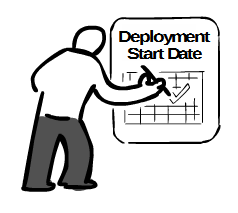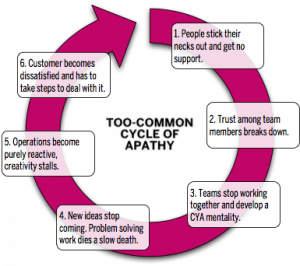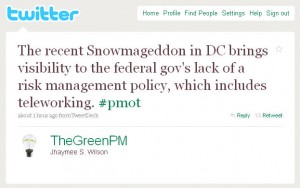 Ever heard of the cone of uncertainty? The cone shows the historical error at certain time periods in a tropical cyclone forecast. What happens today and what has happened in the past is pretty much all we know. We can certainly use all kinds of scientifically proven processes or models to try to predict the future. But, in the end, we won't know what tomorrow will bring until tomorrow. If you are dealing with machines, you should be able to predict upcoming events with relative certainty. If you are dealing with people or something like mother nature, the odds of predicting events with certainty are slim to none.
We need to assume that baselines may change significantly during a project or in life. In unpredictable environments, empirical methods should be used to monitor progress and direct change, rather than using definitive methods to try and predict progress and stop change.
Ever heard of the cone of uncertainty? The cone shows the historical error at certain time periods in a tropical cyclone forecast. What happens today and what has happened in the past is pretty much all we know. We can certainly use all kinds of scientifically proven processes or models to try to predict the future. But, in the end, we won't know what tomorrow will bring until tomorrow. If you are dealing with machines, you should be able to predict upcoming events with relative certainty. If you are dealing with people or something like mother nature, the odds of predicting events with certainty are slim to none.
We need to assume that baselines may change significantly during a project or in life. In unpredictable environments, empirical methods should be used to monitor progress and direct change, rather than using definitive methods to try and predict progress and stop change.
Definitive
You work and work and work, trying to lock in your scope, your schedule, and your budget before the project even begins. You do everything you can to lay it all out, attempting to account for every possible variable. Unfortunately, you don’t know what tomorrow will bring. So, the further out the schedule goes, the greater the risk something is going to change. What’s it going to be? Is scope going to change or maybe the schedule will slip? With the cone of uncertainty, whatever foreseen changes are ahead, there are going to be exponentially more unforeseen the further out the schedule goes.
Empirical
In reality, you begin with the greatest unknown. Even some of the unknowns aren't even known. Just accept it! You’re not the Amazing Kreskin. You can’t predict the future. The only thing that is guaranteed is something is going to change. So, plan for that change. Know the goal you’re trying to reach. Keep your eye on that goal. Now, do what you do. Develop, lead, manage… it doesn’t matter. What does matter is you see where you are right now, know where you want to go, and then at a measured time, see where you are again. Make some adjustments and repeat. You will find if you just accept the change, you can use it to your advantage to get closer and closer to your goal.
Summary
You can not predict the future, only plan for it. You can not steer a hurricane, only plan for it. You can not prevent change… Can you guess what comes next? That’s right, you plan for it.







